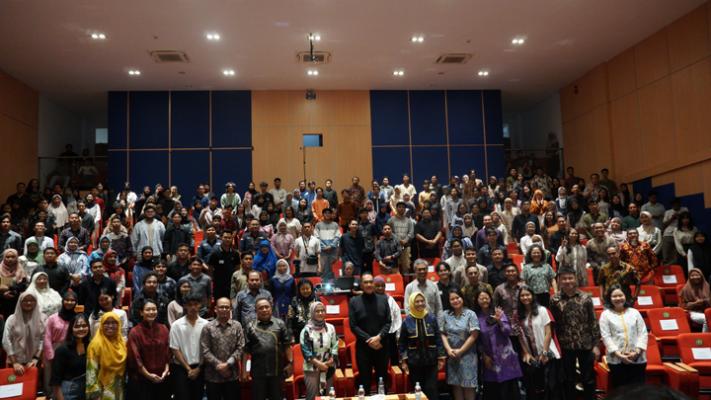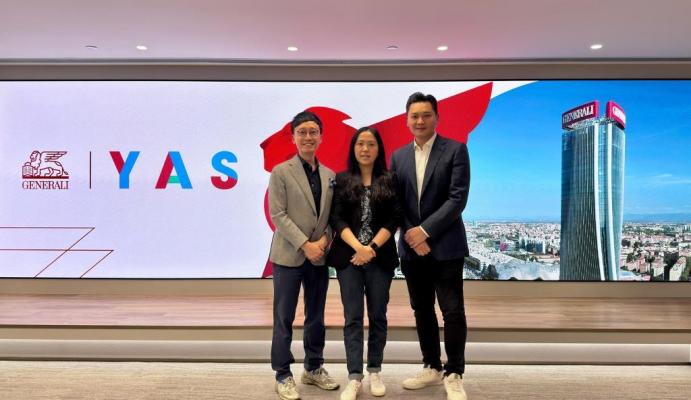- Home
- MediaOutReach
- More Than Half of Workers in Hong Kong are Considering Changing Employers in 2025, Aon Study Reveals
More Than Half of Workers in Hong Kong are Considering Changing Employers in 2025, Aon Study Reveals
Kamis, 20 Februari 2025 | 10:35

HONG KONG SAR -
Media OutReach Newswire - 20 February 2025 - Aon plc (NYSE: AON), a leading global professional services firm, today released results from its
2025 Human Capital Employee Sentiment Study
with new insights specific to employees in Hong Kong. The global study
of more than 9,000 employees across 23 geographies, including the U.S.,
UK, China, India and Australia, found that more than half of workers in
Hong Kong are considering changing employers.
The research reveals a troubling trend: almost one in five employees (17 percent) in Hong Kong feel undervalued in their current roles compared to seven percent in mainland China and 13 percent globally.
Dissatisfaction with Compensation and Benefits
The study reveals that 60 percent of employees in Hong Kong do not believe their compensation is fair compared to similar roles in the industry, a figure significantly higher than the global benchmark of 37 percent. Further, more than one third of the workforce (35 percent) in Hong Kong is not confident there is adequate investment in their skills development — double the global average. These results point to growing employee dissatisfaction in the Hong Kong market and may explain why the majority (63 percent) either plan to switch jobs or are considering doing so within the next year.
Competitive pay and meaningful benefits are identified as the most influential factors when deciding to stay with or join a company, signalling the need for employers to act swiftly to improve employee benefits and offer competitive rewards.
Paid Time Off Ranked Top-Value Benefit
The study identified the top five benefits valued by employees in Hong Kong:
More than half of the employees (57 percent) would be willing to sacrifice existing benefits for a better choice of benefits, presenting an opportunity for employers to provide personalised and flexible benefit options to meet the needs of their workforce.
A staggering 75 percent of employees in Hong Kong prefer office-based working arrangements, over 20 percent higher than the global average.
The study also brings attention to the lack of equity in pay and career development practices, with 41 percent of employees not confident their employer ensures gender pay equality. Additionally, women are 11 percent more likely than men to want career development and learning. This reinforces the need for employers to take steps to offer customised benefits across demographics including pay transparency and career development to attract and retain top women talent.
Read Aon's Human Capital Employee Sentiment Study here.
The research reveals a troubling trend: almost one in five employees (17 percent) in Hong Kong feel undervalued in their current roles compared to seven percent in mainland China and 13 percent globally.
Dissatisfaction with Compensation and Benefits
The study reveals that 60 percent of employees in Hong Kong do not believe their compensation is fair compared to similar roles in the industry, a figure significantly higher than the global benchmark of 37 percent. Further, more than one third of the workforce (35 percent) in Hong Kong is not confident there is adequate investment in their skills development — double the global average. These results point to growing employee dissatisfaction in the Hong Kong market and may explain why the majority (63 percent) either plan to switch jobs or are considering doing so within the next year.
Competitive pay and meaningful benefits are identified as the most influential factors when deciding to stay with or join a company, signalling the need for employers to act swiftly to improve employee benefits and offer competitive rewards.
Paid Time Off Ranked Top-Value Benefit
The study identified the top five benefits valued by employees in Hong Kong:
- Paid time off
- Medical coverage
- Work-life balance programs
- Retirement savings
- Dental insurance
More than half of the employees (57 percent) would be willing to sacrifice existing benefits for a better choice of benefits, presenting an opportunity for employers to provide personalised and flexible benefit options to meet the needs of their workforce.
A staggering 75 percent of employees in Hong Kong prefer office-based working arrangements, over 20 percent higher than the global average.
Top Employee Expectations
The study also identified the top expectations employees have of their employers:- 33 percent said employers should help employees save for retirement/long-term needs.
- 28 percent said employers should support employee wellbeing.
- 20 percent said employers should support women's health (e.g., menstruation, menopause).
- 19 percent said employers should help them establish an emergency fund.
- 18 percent said employers should support with eldercare or family care.
The study also brings attention to the lack of equity in pay and career development practices, with 41 percent of employees not confident their employer ensures gender pay equality. Additionally, women are 11 percent more likely than men to want career development and learning. This reinforces the need for employers to take steps to offer customised benefits across demographics including pay transparency and career development to attract and retain top women talent.
Read Aon's Human Capital Employee Sentiment Study here.
BERITA LAINNYA

Jumat, 21 Februari 2025 | 12:06
Jumat, 21 Februari 2025 | 11:55

Jumat, 21 Februari 2025 | 11:54

Jumat, 21 Februari 2025 | 09:29

Jumat, 21 Februari 2025 | 09:25

Kamis, 20 Februari 2025 | 16:11

Kamis, 20 Februari 2025 | 10:36

Kamis, 20 Februari 2025 | 10:35

Kamis, 20 Februari 2025 | 10:34

Kamis, 20 Februari 2025 | 08:36

Kamis, 20 Februari 2025 | 08:33






















